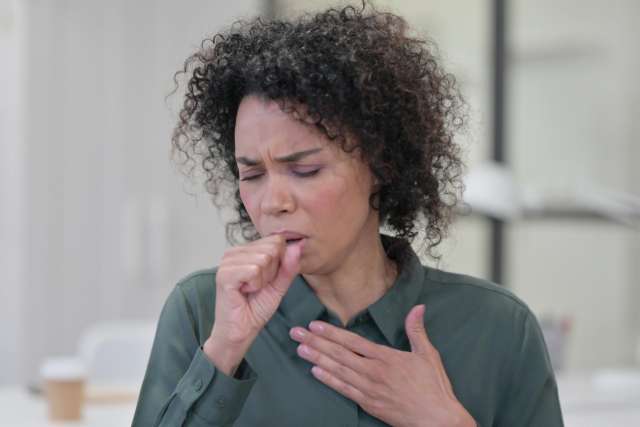Dear Doctors: I caught a cold and was sick for about a week. There wasn't anything unusual about it except that now I have a dry cough that won't go away. It gets triggered by cold air and gets worse at night. I was in a sauna recently, and it stopped. What's happening? How can I get rid of it?
Dear Reader: You're dealing with a condition known as a post-infectious cough. This can occur in someone recovering from infection with a respiratory virus. Sometimes also referred to as a post-viral cough, the persistent symptoms are as you have described.
The trajectory of a cold, from onset to recovery, typically takes anywhere from one to two weeks. Symptoms include a stuffy or runny nose, sneezing, coughing, sore throat and post-nasal drip. They arise due to the body's response to presence of the virus and the immune system's multifaceted efforts to stop it. However, in some people, the inflammation that accompanies a cold or the flu will persist, even after the viral infection itself has ended. This can lead to a post-infectious cough. It can last for several weeks after other cold symptoms have faded and, in some cases, for up to two months.
As you have discovered, breathing cold air can make you cough. One reason is that cold air causes the moist and delicate tissues of the airways to contract. Cold air is also drier than warmer air and acts as an irritant. Each of these can initiate a cough reflex. It's the body's effort to ease the constricted air passages and to move moist air up and out from the lungs.
Lying down when your body is producing excess mucus can also trigger a dry cough. In the prone position, the mucus can more easily enter and irritate the airways and thus lead to coughing.
A post-infectious cough often runs its course within a few weeks. It can be irritating, but it is not usually dangerous. The symptoms can be managed with over-the-counter medications and home remedies. These include sucking on a hard candy or cough drop to keep the throat moist and lubricated. Menthol varieties, which cause the mucus membranes to shrink, will briefly slow mucus production. Honey mixed into a warm beverage also has a soothing effect on irritated throat tissues.
Studies have shown that the warm air of a sauna can ease the constriction associated with a persistent cough. Using a sauna as you recover may bring some relief, as can using a humidifier. The moisture it adds to the air can gives the irritated tissues of the airways a much-needed break. Elevating your upper body with extra pillows at night can keep mucus flowing down the throat rather than into the airways.
If this cough persists for more than a month, it's a good idea to see your doctor. The immune system can get overwhelmed when dealing with a virus, and some people develop a secondary infection. While it's not common, it is possible for a respiratory infection to be a factor in adult-onset asthma. Your doctor can evaluate your symptoms and offer additional care if needed.
(Send your questions to [email protected], or write: Ask the Doctors, c/o UCLA Health Sciences Media Relations, 10960 Wilshire Blvd., Suite 1955, Los Angeles, CA, 90024. Owing to the volume of mail, personal replies cannot be provided.)





